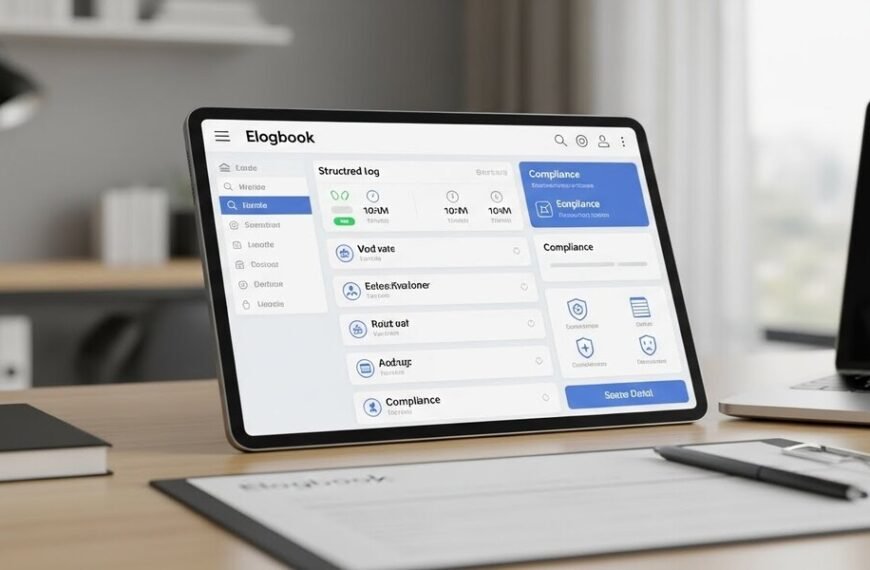Understanding Portable Generators for Camping
When you go camping, having a portable generator can make your trip more comfortable by providing power to essential devices. Solar generators offer a clean energy option, ensuring you have a reliable power source without harming the environment.
The Basics of Portable and Solar Generators
Portable generators are compact devices that supply electricity by burning fuel or using solar power. They provide power for lights, small appliances, and electronic devices while you’re camping. Fuel-based generators use gasoline or propane, which are easy to find but can be noisy.
Solar generators harness energy from the sun through solar panels. This type of generator stores solar energy in a battery, allowing you to use clean energy even when the sun isn’t shining. Solar generators are quieter and produce no harmful emissions, making them popular for eco-friendly camping.
Advantages of Using Solar Generators
Using a solar generator while camping comes with several benefits. First, you tap into renewable energy from the sun, which is abundant and free. This means less reliance on fuel and reduced costs over time.
Solar generators provide clean energy, creating no pollution and reducing your carbon footprint. They are also low-maintenance since they have fewer moving parts compared to fuel-based generators. Additionally, solar generators are silent, allowing you to enjoy the peace of nature without the noise of traditional units.
By choosing a solar generator, you help preserve the environment while still enjoying the convenience of portable power during your outdoor adventures.
Choosing the Right Generator for Your Camping Trip
When planning a camping trip, having the right generator is key to keeping your gear powered. It helps ensure a smooth and enjoyable outdoor experience, whether you’re just charging your phone or running a mini fridge.
Determining Power Requirements for Camping
Understanding your power needs is the first step. Think about what appliances and devices you’ll need to run.
- Lights, phones, and small electronics usually require a generator with at least 1,000 watts.
- If you plan to use larger devices like portable coolers or heaters, you’ll need more power—around 2,000 watts or more.
- Make a list of your devices and check their power consumption to ensure you choose a generator that can handle the load.
Comparing Solar and Diesel/Gasoline Generators
Solar Generators
These are great for eco-conscious campers. They use the sun’s energy, making them silent and emissions-free. Keep in mind that their performance depends on sunlight availability.
Diesel/Gasoline Generators
These offer more consistent power regardless of weather conditions. They tend to be noisier and require fuel, which means carrying extra weight. Gasoline generators are a common choice, but you should consider fuel availability on your trip.
Top Picks: Best Generators for Outdoor Camping
Finding the best portable generators depends on balancing power needs and convenience. Here are some choices:
- Jackery Solar Generator 1000 V2: Ideal for those wanting a solar option, known for its reliability and easy use.
- Honda EU2200i: This gasoline generator is valued for its quiet operation and efficiency, great for general use.
- Yamaha EF2000iSv2: Offers a balance between power and portability, making it a favorite among many campers.
Choose based on your camping style, ensuring you have enough power without sacrificing ease of transport. Whether solar or fuel-powered, ensure your choice provides the functionality you need for a worry-free camping adventure.
Innovations in Portable Energy Solutions
Portable energy solutions have come a long way, offering advanced features for those interested in outdoor camping. These innovations include new technologies in power storage and the introduction of popular models like Jackery and Bluetti, known for their reliability and versatility.
Latest Technologies in Portable Power Stations
Portable power stations now feature lithium-ion batteries, which are lighter and more efficient. These batteries provide a solid energy solution for campers. LiFePO4 batteries are also gaining popularity because they last longer and are safer.
A key feature of modern portable power stations is solar compatibility. This lets you recharge using sunlight, which is handy for extended trips. Inverter technology ensures that the power is clean and stable, making it suitable for sensitive devices like laptops and cameras.
Spotlight on Popular Models: Jackery and Bluetti
Jackery and Bluetti have become popular choices for campers looking for reliable portable power. The Jackery Explorer 1000 is known for its efficiency and easy portability, offering 1000 watts of power. It’s also solar compatible, allowing you to harness energy from the sun with ease.
The Bluetti EB3A Portable Power Station stands out for its compact design and LiFePO4 battery. It provides steady power and supports multiple devices, making it ideal for campers who need sustainable energy options. With USB ports and AC outlets, it caters to a variety of charging needs on your outdoor adventures.
Practical Uses of Generators While Camping
When camping, a generator can transform your outdoor experience by adding convenience and comfort. You can power essential gadgets and maintain a comfortable campsite using electronics.
Powering Essential Camping Gadgets
Generators are handy for running devices like camping lights and portable fans. These gadgets help make your campsite safer and more comfortable after dark and in warm weather. You can use an RV generator or smaller portable options for these needs.
A portable generator, like the Jackery solar generator, offers a quiet operation, making it perfect for the tranquil camping environment. The versatility of generators means you can charge your electronic devices, ensuring you have access to communication and navigation tools whenever needed.
Maintaining Comfort with Electronics in the Outdoors
You can use a generator to power devices like portable AC units. When summer temperatures rise, keeping cool can be crucial, especially for families or those with health concerns.
For added convenience, generators can run small cooking appliances, like electric grills or crockpots. This can save time and reduce the hassle of starting a fire. A generator ensures food preparation is hassle-free and efficient, allowing you to focus on enjoying the great outdoors.
Tips on Sustainable and Efficient Generator Use
Using generators during camping can be eco-friendly and efficient when done right. Focusing on minimizing environmental impact and maximizing fuel efficiency not only helps protect nature but also conserves resources.
Environmental Considerations and Impact
When using a generator, think about its environmental footprint. Opt for generators with cleaner emissions and efficient fuel use.
Invest in models designed with sustainability in mind, reducing harmful gases. Try using solar-powered generators when possible; these reduce reliance on fossil fuels and are almost silent.
Consider setting up your generator far from wildlife and other campers to lessen disturbances. Noise pollution can affect everyone around you, so wrap your generator with soundproof blankets to muffle noise.
Fuel Efficiency and Energy Conservation
To get the most out of your fuel, choose generators known for fuel efficiency. Preferring compact and lightweight designs can also save fuel, as they often need less power to operate.
Energy-efficient appliances should be your go-to for devices you power with the generator. They consume less electricity, allowing you to use smaller generators and conserve fuel.
Regularly maintain your generator to keep it in top condition. A well-maintained generator burns fuel more efficiently, reducing waste. Be mindful not to overload your generator, as this can increase fuel consumption and strain the machine.
Safety and Maintenance of Portable Generators
When using portable generators, it’s important to focus on ensuring safe operation and proper upkeep. Using the right methods can keep your generator reliable during emergency situations, like camping trips or power outages. Pay attention to safety and regularly maintain your generator to enjoy seamless operation.
Essential Safety Practices for Generator Handling
To ensure safe use of your portable generator, follow a few key practices. Always operate the generator outdoors to prevent carbon monoxide poisoning. Make sure it’s at least 20 feet away from windows, doors, and vents. Using an extension cord that’s rated for outdoor use ensures safety and equipment reliability.
Overloading the generator can lead to overheating and damage. Keep a check on the power capacity and avoid plugging in more devices than the generator can handle. Pay attention to the generator’s decibel rating to minimize noise disruption, especially when camping in quiet areas.
For emergency preparedness, have a carbon monoxide detector that alerts you if levels rise too high. Keep fuel securely stored in a safe location and away from the generator, to prevent fires or explosions. Always refuel the generator only when it’s turned off and cool.
Routine Maintenance Tips for Longevity and Reliability
Proper maintenance helps your portable generator last longer. Regular oil changes are crucial to keep the engine running smoothly. Check your generator’s manual to know how often you should change the oil. Inspect the air filter and clean or replace it as needed for efficient operation.
Frequent checks of fuel lines and tanks help prevent leaks. Ensure that connections are tight and secure for safety. Monitor fuel consumption and adjust usage to extend the life of the generator and keep costs low.
Batteries should be inspected if your generator has an electric start feature. Charging them periodically keeps them ready for instant use. Clean the exterior and keep it free from dust and debris to maintain performance. Keeping up with these tasks ensures reliability whenever you need your generator.






